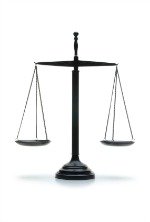Ethics in the Workplace
Building and maintain ethics in the workplace means an organization is committed to protecting its integrity. Its integrity is its identity. It is worth more to an organization than its wealth or its position in the market. Whatever tarnishes its integrity does significant harm to it.
|
An organization’s integrity is its decisions to live by principles of justice. These principles are:
|
 |
What sets successful organizations apart from unsuccessful ones is the strength with which they honor these decisions.
The dignity of all human beings.
Respecting the dignity of all human beings demands that whatever an organization produces or provides brings no harm to whoever buys or uses it.
It fulfills this obligation by testing the safety of its products and services before selling and distributing them. It also requires the organization to ensure that its workers are safe while manufacturing ,developing, servicing, or distributing its products.
Companies that cut back on their obligation to keep workers and customers from harm undercut their commitment to operate by ethics in the workplace and do harm to their reputation.
Respecting the dignity of workers also requires that every worker be guaranteed equal opportunity. That means each worker is able to apply for positions or for assignments for which they have the required skills, knowledge, and experience.
Equal opportunity provides openings for workers to develop their skills and talents through work they enjoy or value, plus occasions to talk openly and honestly about their concerns without fear of reprisals.
Finally, the decision to respect the dignity of human beings obliges an organization to respect and protect the uniqueness of each worker. It does this by informing its workers of their rights and how they can expect to be treated. As well, it makes sure effective procedures are in place for filing grievances if these rights are violated or workers are treated without the respect they deserve.
Transparency
The decision to be transparent or open compels the organization to be truthful and participative with its workers, customers and clients. That’s another way successful companies safeguard ethics in the workplace. They keep workers and customers up-to-date with relevant and in-time information whenever possible.
The Liberty of others
When an organization commits itself to respecting the liberty of others it recognizes the right of its workers to take responsibility for their own lives. It treats them as individuals who have lives separate from the workplace and gives them the time they need to attend to them.
Effective Communication Coaching offers communication skills that enable individuals and groups to build and maintain their integrity, and to repair it when it is weakened.
Top of Ethics in the Workplace




